COVID-19 caused mountains of medical waste. Households under lockdown took to ordering much of what they needed online, a habit that generates vast amounts of single-use packaging. At the same time, environmental monitoring and conservation programs were disrupted.
But the pandemic’s impact wasn’t all bad. People avoided travel, so there was a significant albeit temporary drop in greenhouse gas emissions. Wildlife benefited from less human disturbance. And, according to King Hsin-i (金欣儀), demand for pesticide-free produce soared in Taiwan.
King leads Buy Directly From Farmers (直接跟農夫買, BDFF), a social enterprise this column previously profiled (“Sustainable sustenance” Sept. 23, 2020). BDFF now partners with more than 300 small-scale farmers who practice various types of agriculture that prioritize environmental stewardship.
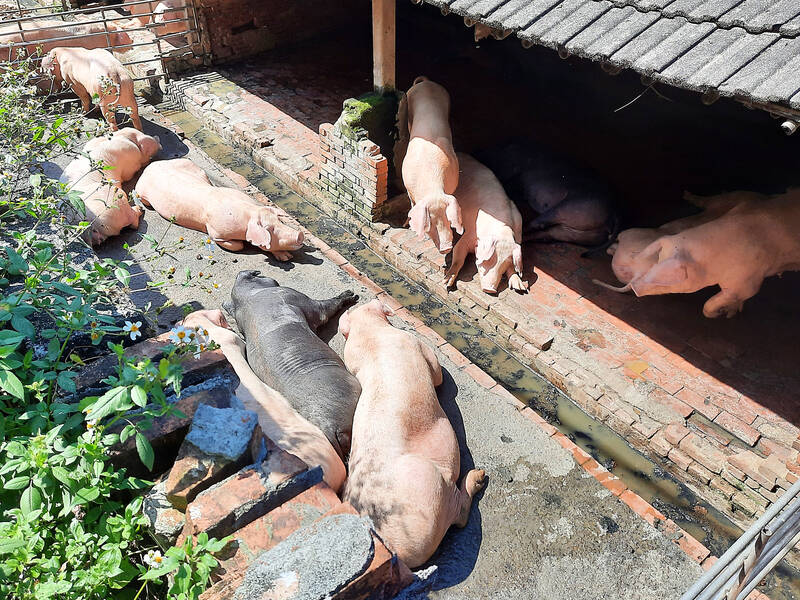
Photo: Steven Crook
As the pandemic began to loom large, people who had never previously purchased food via the Internet learned to do so, King explains. Individuals who usually ate outside began cooking for themselves — and seeking out healthy ingredients that could boost their immune systems.
In the 2020-2021 period, BDFF’s turnover grew by around 40 percent per year. Since then, consumer behavior has to some extent reverted to pre-pandemic patterns, she says, but the platform she founded in 2014 continues to enjoy moderate growth.
When those who’d rather not cook for themselves went back to their old habits, it affected certain farmers more than others, King noticed. Producers of sustainable seafood, humanely raised meat and vegetables experienced a drop in demand that didn’t affect fruit growers, she says. This is probably because health- and eco-conscious consumers often buy fruit, even if they seldom cook.
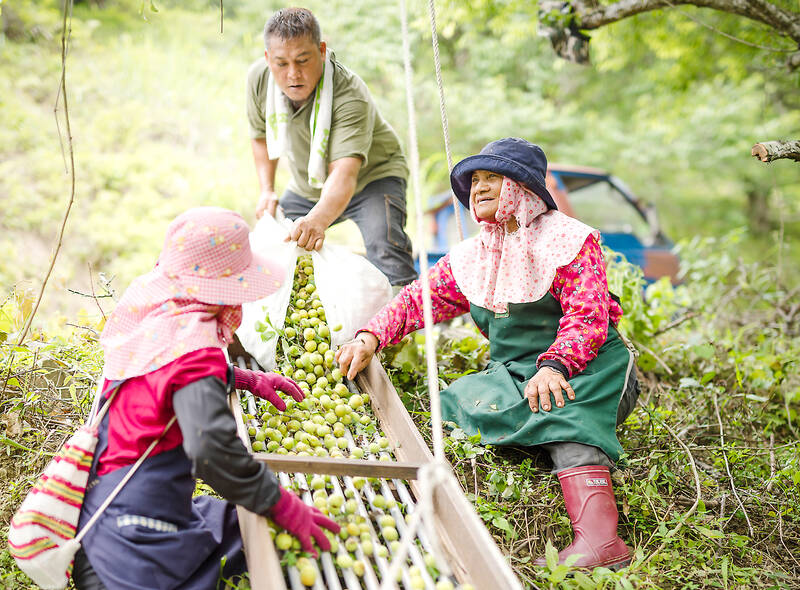
Photo: Steven Crook
King thinks there’s a serious downside to Taiwan being so convenient and inexpensive when it comes to buying freshly-cooked meals.
“People lose the ability to prepare food at home,” she complains. “They lose table time with their family. Cooking together and eating together is very important. More convenience, but less happiness!”
ESG COOPERATION
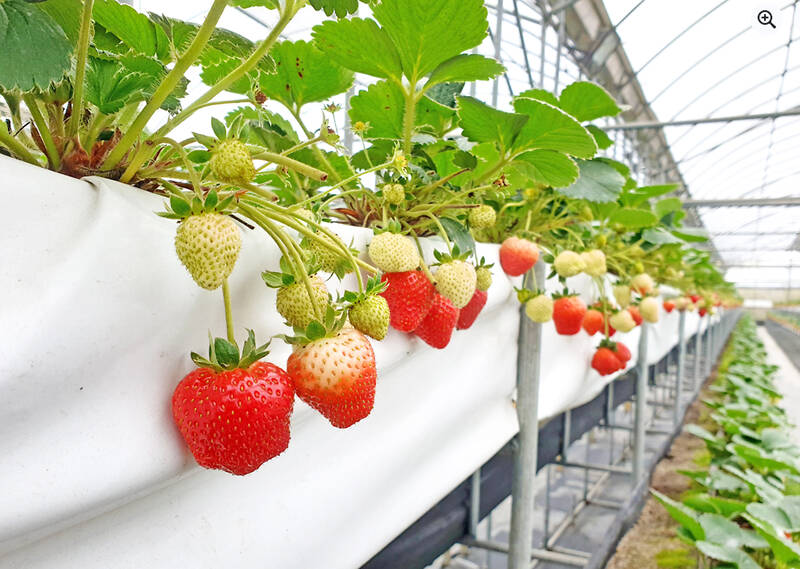
Photo courtesy of BDFF
A broader trend, separate from the pandemic’s effects, is significantly benefiting BDFF and the farmers it works with. “Major companies now have to pay attention to ESG [Environmental, social and governance], in part because Taiwan’s government is pushing them to do so,” King says.
ESG is a lens through which a company’s performance and impact are evaluated beyond traditional profit/loss metrics. By the end of last year, 722 companies — or more than 7 out of every 10 of the enterprises listed on the Taiwan Stock Exchange — had issued sustainability reports for the previous year, according to the exchange’s Web site.
“In recent years, we’ve cooperated with over 200 companies in Taiwan, including DBS Bank and TSMC. They care about sustainability issues, especially when they’re purchasing gifts for their employees,” King says.
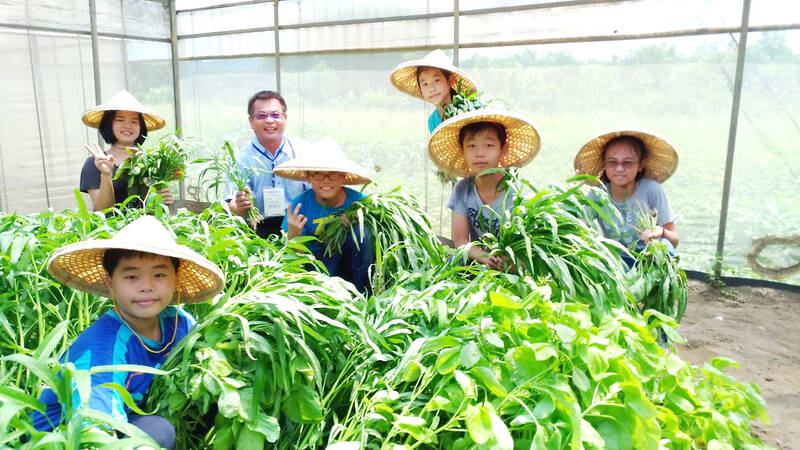
Photo: Chiu Shu-yu, Taipei Times
Attaining B Corp status — which signals that its high standards of accountability and transparency, as well as its social and environmental performance, have been verified by a third party — has helped BDFF attract corporate partners. “It’s an international process, so it’s a very credible endorsement and proof that we’re doing good,” says King.
The Ministry of Economic Affairs (MOEA) is encouraging this kind of cooperation through its “Buying Power” awards, she adds. This incentive mechanism was established to, in the words of the MOEA’s Social Innovation Platform Web site, “boost the attention paid to social innovation organizations and related issues in Taiwan, promote responsible production and consumption … and increase the business community’s focus on responsible procurement.”
The Web site claims that, between 2017 and 2024, procurement of this type totaled almost NT$7.8 billion. That may sound like a lot of money, but last year TSMC spent 26 times as much on research and development.
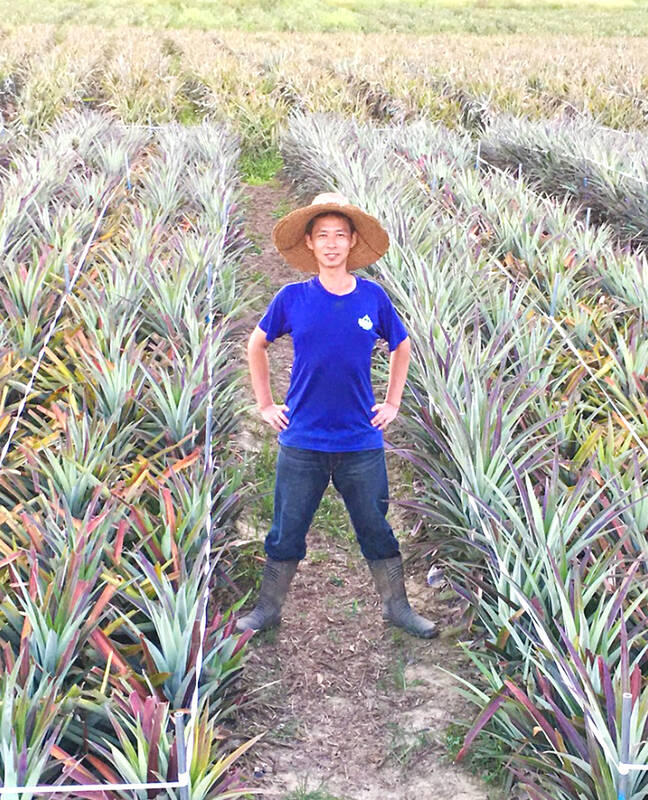
Photo courtesy of BDFF
CONSUMER AWARENESS
Many companies incorporate the UN Sustainable Development Goals (SDGs) into their ESG reports. Of the 17 SDGs, at least seven are directly relevant to sustainable agriculture. Among them are numbers 6 (clean water and sanitation), 12 (responsible consumption and production), and 15 (life on land).
King points to evidence that the SDGs are influencing individual consumers as well as purchasing managers in the private and public sectors. Citing BDFF’s 2024 Social Impact Report, she says that 73 percent of the platform’s users are aware of the SDGs.
“We promote these concepts through our Web site, and 90 percent of our members say they believe that, by supporting our farmers, they’re making a contribution to the fight against climate change,” she adds.
Since BDFF’s early days, it’s tried to clearly communicate the environmental upsides of the farming practices it supports, King says, “but so far we haven’t quantified the impact.”
To encourage consumers to do the right thing and make it more likely they’ll feel their actions are meaningful, BDFF will next year revamp its Web site so participants can see the direct effect of their purchasing decisions. “It’ll show in detail how much land is being protected and how many wild creatures are benefiting,” King says.
Around 100,000 people have opened accounts with BDFF, but King points out that not all of them make regular purchases. “Some of them are young people who aren’t the main food shoppers for their households. They’ve signed up because they support our goals,” she says.
Seeing the glass as half full, King explains that even if each person only buys a fraction of the food they eat from farmers like those BDFF works with, “together we can make some improvement … if sustainability is the number one priority, we’ll change the world for the better.”
CHALLENGES AHEAD
Having a cadre of eco-conscious agriculturalists and consumers who support them is a good start. But there are clouds on the horizon.
International trade relationships are one concern. King says she’s aware that if the government signs a deal with the Trump administration to prevent the imposition of high tariffs on Taiwanese exports to the US, the protection from cheap imports that local farmers currently enjoy (in the form of tariffs that averaged 15.06 percent in 2023) is likely to be scaled back.
There’s also the land issue.
At the end of last year, the Legislative Yuan voted to postpone the implementation of the Spatial Planning Act to 2031, because several cities and counties hadn’t submitted their land-zoning maps in time to meet the original target date of Apr. 30 this year.
Sung Jo-chen (宋若甄) says that this delay has resulted in a noticeable acceleration in the sale of agricultural land and the building of “farmhouses” in and around Shengou (深溝), her base in Yilan County’s Yuanshan Township (員山). Sung’s campaign to save the land on which she grows rice from development featured in this column last year (“Protecting Taiwan’s green spaces one ping at a time,” Apr. 10, 2024).
The construction of thousands of “farmhouses” (quotation marks are used, because typically these buildings are second homes for city people rich enough to exploit a legal loophole) has fragmented much of Taiwan’s best farmland. Nonetheless, Sung hopes later this year to launch another fundraising effort and secure a second plot of arable land. By itself, of course, it’s nowhere near enough. But it’s progress.
Steven Crook, the author or co-author of four books about Taiwan, has been following environmental issues since he arrived in the country in 1991. He drives a hybrid and carries his own chopsticks. The views expressed here are his own.

Taiwan has next to no political engagement in Myanmar, either with the ruling military junta nor the dozens of armed groups who’ve in the last five years taken over around two-thirds of the nation’s territory in a sprawling, patchwork civil war. But early last month, the leader of one relatively minor Burmese revolutionary faction, General Nerdah Bomya, who is also an alleged war criminal, made a low key visit to Taipei, where he met with a member of President William Lai’s (賴清德) staff, a retired Taiwanese military official and several academics. “I feel like Taiwan is a good example of

March 2 to March 8 Gunfire rang out along the shore of the frontline island of Lieyu (烈嶼) on a foggy afternoon on March 7, 1987. By the time it was over, about 20 unarmed Vietnamese refugees — men, women, elderly and children — were dead. They were hastily buried, followed by decades of silence. Months later, opposition politicians and journalists tried to uncover what had happened, but conflicting accounts only deepened the confusion. One version suggested that government troops had mistakenly killed their own operatives attempting to return home from Vietnam. The military maintained that the

Taipei Mayor Chiang Wan-an (蔣萬安) announced last week a city policy to get businesses to reduce working hours to seven hours per day for employees with children 12 and under at home. The city promised to subsidize 80 percent of the employees’ wage loss. Taipei can do this, since the Celestial Dragon Kingdom (天龍國), as it is sardonically known to the denizens of Taiwan’s less fortunate regions, has an outsize grip on the government budget. Like most subsidies, this will likely have little effect on Taiwan’s catastrophic birth rates, though it may be a relief to the shrinking number of

Since its formation almost 15 years ago, Kaohsiung rock band Elephant Gym (大象體操) has shattered every assumption about contemporary popular music, and their story is now on screen in a documentary titled More Real Than Dreams. It’s an unlikely success story that says a lot about young people in Taiwan — and beyond. For a start, their sound is analog. In the film, guitarist Tell Chang (張凱翔) proudly says: “There is no AI in our sound.” His sister, bass player KT Chang (張凱婷) is the true frontwoman — less for her singing abilities than for her thunderous sound on the instrument. Fast like